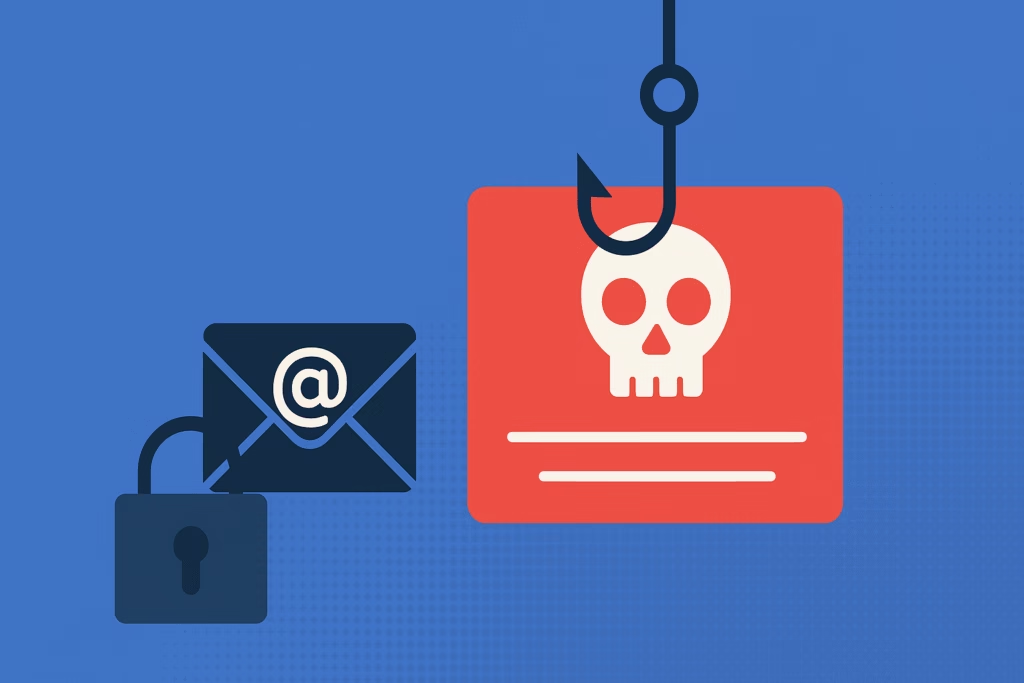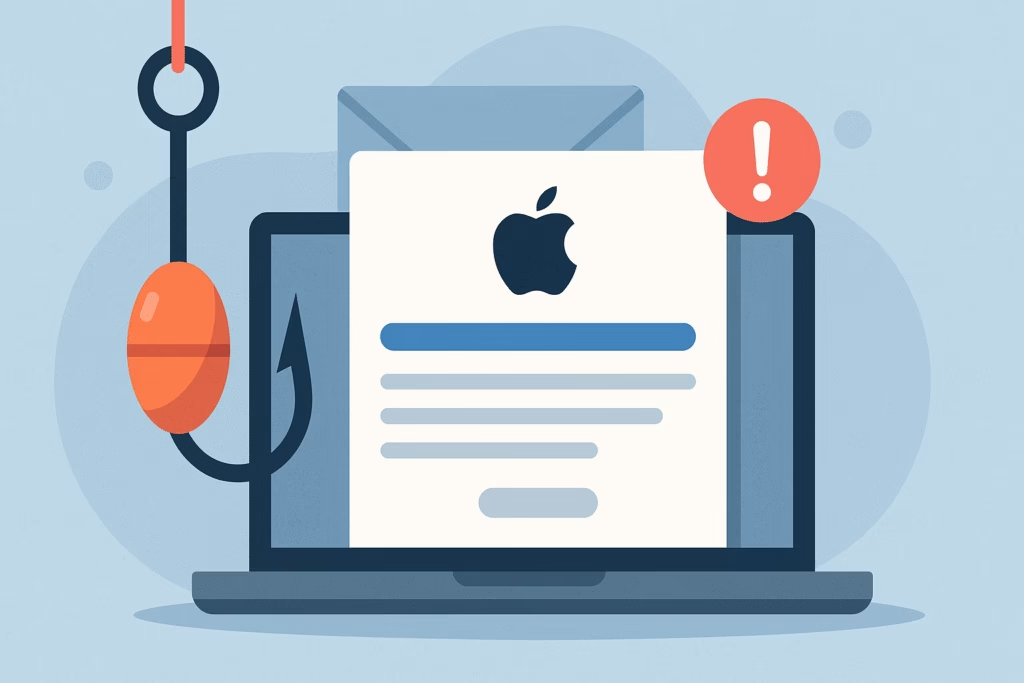
Retail phishing attacks have become one of the most prevalent cybersecurity threats facing American consumers today. Cybercriminals increasingly target popular retail brands like Target, Geek Squad, and Costco, exploiting the trust consumers place in these household names. According to the Federal Trade Commission’s 2023 Consumer Sentinel Report, Americans lost over $10 billion to fraud schemes, with email phishing representing a significant portion of these losses.
These sophisticated scams leverage familiar brand logos, authentic-looking websites, and urgent messaging to steal personal information, login credentials, and financial data. Understanding how these attacks work and knowing how to identify them is crucial for protecting yourself and your organization from becoming the next victim.
Understanding Target Phishing Attacks
Target phishing campaigns have surged dramatically, particularly around major shopping seasons like Black Friday and holiday periods. These attacks typically arrive as seemingly legitimate emails claiming issues with recent purchases, account security alerts, or exclusive discount offers.
Common Target Phishing Tactics
Cybercriminals use several sophisticated methods to impersonate Target in their phishing campaigns:
- Fake purchase confirmations: Emails claiming you’ve made expensive purchases you don’t remember
- Account suspension notices: Urgent messages stating your Target account will be closed unless you verify information
- RedCard security alerts: Fraudulent notifications about suspicious activity on Target credit cards
- Exclusive deals and promotions: Too-good-to-be-true offers requiring immediate account login
Real-World Target Phishing Example
A typical Target phishing email might read: “Your Target account has been temporarily suspended due to suspicious activity. To reactivate your account and protect your RedCard, please verify your information immediately.” The email includes official-looking Target branding and a link that leads to a convincing fake Target login page designed to steal credentials.
The Federal Bureau of Investigation’s Internet Crime Complaint Center reports that retail impersonation scams have increased by 65% over the past two years, with Target being among the most frequently impersonated brands.
Geek Squad Phishing: The Tech Support Scam
Geek Squad phishing attacks represent a particularly insidious form of cybercrime, combining email phishing with phone-based social engineering. These scams exploit consumers’ trust in Best Buy’s technical support service and often target older adults who may be less tech-savvy.
How Geek Squad Phishing Works
The typical Geek Squad phishing attack follows this pattern:
- Initial email contact: Victims receive an email claiming to be from Geek Squad about an auto-renewal charge
- Fake invoice presentation: The email includes a realistic-looking invoice for $300-$400 in services
- Phone number inclusion: A phone number is provided to “cancel” the unwanted service
- Social engineering call: When victims call, scammers request remote access to their computers
- Data theft and fraud: Criminals steal personal information and potentially install malware
Warning Signs of Geek Squad Phishing
Legitimate Geek Squad communications differ significantly from phishing attempts. Watch for these red flags:
- Generic greetings like “Dear Customer” instead of your actual name
- Spelling and grammatical errors throughout the message
- Urgent language demanding immediate action
- Requests for remote computer access from unsolicited contacts
- Email addresses that don’t end in @bestbuy.com or @geeksquad.com
According to AARP’s latest fraud report, tech support scams like fake Geek Squad communications cost Americans over $347 million annually, with individual losses averaging $728 per victim.
Costco Phishing Email Schemes
Costco’s massive membership base and reputation for exclusive deals make it an attractive target for cybercriminals. These attacks often focus on membership-related communications and warehouse club benefits that resonate strongly with Costco’s loyal customer base.
Popular Costco Phishing Strategies
Criminals targeting Costco members typically employ these approaches:
- Membership renewal scams: Fake notifications about expired memberships requiring immediate payment
- Prize and survey frauds: Emails claiming members have won prizes or need to complete surveys
- Payment method updates: Requests to update credit card information for membership auto-renewal
- Exclusive member offers: Limited-time deals requiring immediate action and personal information
How to Report Costco Phishing Emails
When you encounter suspected Costco phishing attempts, taking proper reporting action helps protect other consumers and aids law enforcement investigations:
- Forward the suspicious email: Send the complete email to Costco’s official fraud reporting address
- Report to the FTC: File a complaint with the Federal Trade Commission
- Contact your local FBI field office: For sophisticated scams involving significant financial losses
- Alert your IT department: If you received the email at work, notify your cybersecurity team immediately
Essential Protection Strategies
Defending against retail phishing attacks requires a multi-layered approach combining technology solutions, security awareness, and proper incident response procedures.
Email Security Best Practices
Implement these fundamental email security measures:
- Enable two-factor authentication: Add an extra security layer to all retail accounts
- Verify sender authenticity: Check email addresses carefully and look for subtle misspellings
- Avoid clicking suspicious links: Navigate to retailer websites directly through your browser
- Keep software updated: Maintain current versions of email clients and security software
Advanced Detection Techniques
Professional-grade phishing protection involves sophisticated detection methods:
- URL analysis and link scanning technology
- Machine learning-based content analysis
- Real-time threat intelligence integration
- Behavioral analysis of sender patterns
Organizations dealing with high volumes of email communications often benefit from specialized phishing protection services like PhishDef, which provide advanced threat detection and employee training programs designed to identify and block retail impersonation attacks before they reach end users.
When Phishing Attacks Succeed: Response and Recovery
Despite best prevention efforts, some phishing attacks may succeed. Quick response can minimize damage and prevent further compromise.
Immediate Response Steps
If you’ve fallen victim to a retail phishing attack, take these immediate actions:
- Change all passwords: Update credentials for the targeted retailer and any accounts sharing similar passwords
- Contact your bank: Alert financial institutions about potential fraudulent activity
- Monitor credit reports: Watch for unauthorized accounts or suspicious activity
- Document everything: Save copies of fraudulent emails and note any financial impacts
- Report to authorities: File reports with relevant law enforcement and consumer protection agencies
Building Organizational Resilience
Businesses must develop comprehensive strategies to protect employees and customers from retail phishing attacks. This includes regular security training, updated policies, and technology solutions that can adapt to evolving threats.
Employee education programs should focus on real-world scenarios and hands-on practice with identifying suspicious emails. Regular phishing simulations help reinforce training and identify areas where additional support may be needed.
Key Takeaways for Retail Phishing Protection
Protecting yourself and your organization from Target phishing, Geek Squad phishing, and Costco email scams requires vigilance, proper tools, and ongoing education. Remember that legitimate retailers will never request sensitive information through unsolicited emails or phone calls.
Always verify suspicious communications by contacting retailers directly through official channels. When in doubt, err on the side of caution and delete suspicious messages rather than engaging with potentially fraudulent content.
Stay informed about the latest phishing trends and attack methods, as cybercriminals continuously evolve their tactics to bypass security measures and exploit new vulnerabilities.
Ready to strengthen your organization’s defense against retail phishing attacks? PhishDef provides comprehensive email security solutions designed to detect and block sophisticated phishing campaigns before they reach your users. Our advanced threat protection combines real-time scanning, machine learning detection, and employee training programs to create a robust security framework. Contact PhishDef today to learn how we can help protect your business from the growing threat of retail impersonation scams.


